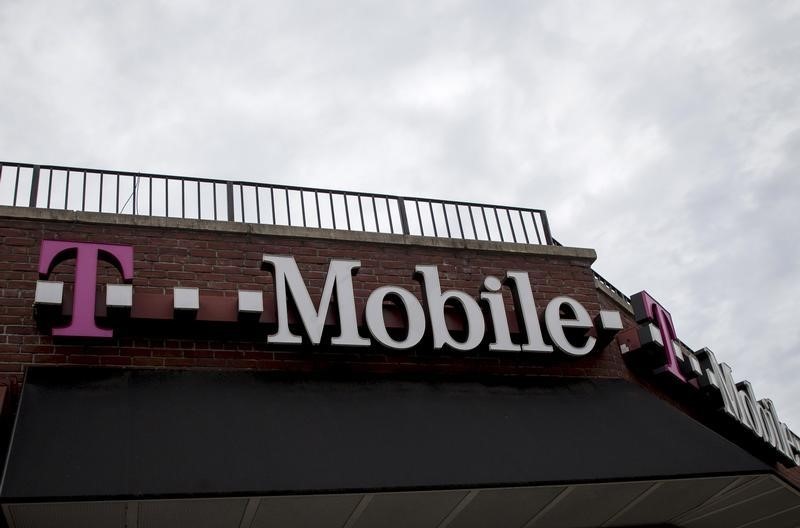By Malathi Nayak
NEW YORK (Reuters) - A few months ago, T-Mobile US Inc looked set to dominate a race for airwaves reserved for smaller, emerging players in an upcoming U.S. auction, a feat that would help it compete with U.S. wireless heavyweights Verizon Communications (N:VZ) and AT&T Inc (N:T).
In part of a low-frequency airwaves auction, which includes spectrum set aside for non-dominant carriers, No.3 U.S. wireless player T-Mobile was the only major bidder in sight.
But new competitors for the spectrum are surfacing, which could dash T-Mobile’s chances of acquiring enough spectrum at a price it can afford. Its executives have called the auction a "game changer," as it plans to expand the reach of its network to better compete with bigger rivals.
Silicon Valley, cable companies and financial players have signaled interest in the auction, which starts in March and features the broadest array of potential bidders since at least 2008.
"Where it was T-Mobile as the 600 pound gorilla and a bunch of monkeys, the gorilla wins. But now you have orangutans and some other large apes in the fight," said Recon Analytics analyst Roger Entner. T-Mobile is expected to pay more for the reserved spectrum in the face of tighter competition, analysts said.
The U.S. Federal Communications Commission's auction involves selling valuable low-frequency airwaves taken from TV broadcasters who do not require them anymore to companies who want to build new wireless networks or improve their existing coverage.
The auction is expected to be the last for several years of such airwaves, which can carry signals over long distances and penetrate obstacles such as buildings.
From "connected cars to drones, the coverage qualities of the spectrum make it ideal for technology companies," said Lawrence Chu, managing director at investment bank Moelis & Co, and previously a special advisor to the FCC on the upcoming auction.
The spectrum is also good for financial firms planning to partner with rural providers and cable companies aiming to fill in gaps in a network of Wi-Fi hot spots, he said.
The FCC's deadline to file applications to participate in the auction ended on Wednesday.
Comcast Corp, which last bought spectrum in 2001, has applied. Google Inc (O:GOOGL), which participated but did not buy in a 2008 auction, is sitting out, but Silicon Valley investment firm Social Capital has said it will take part. At a conference in November, Social Capital Chief Executive Chamath Palihapitiya said he planned to raise $4 billion to $10 billion for the auction to build a new wireless network.
FCC filings show that private equity firm M/C Partners and venture capital firm Columbia Capital lobbied regulators for rules to encourage small businesses backed by investors to participate in the auction. Both firms, whose websites say they make investments in the tens of millions of dollars, did not respond to requests for comment.
"If you’re going to do the work to participate in the proceeding, you’re probably at least looking,” analyst Paul de Sa of Bernstein Research said.
The full list of applicants is expected to be made public before the March 29 auction begins, an FCC official said.
For two years, T-Mobile and Sprint Corp lobbied the FCC to reserve some airwaves for up-and-coming wireless providers and to exclude the top two U.S wireless providers Verizon and AT&T from bidding in some markets.
Sprint, in October, said it would skip the auction, opening up the field for T-Mobile. In the last auction that ended in January 2015, T-Mobile spent $1.8 billion of the record-setting $44.9 billion total.

T-Mobile, which has a market share of 16 percent, declined to comment. It has said it plans to spend up to $10 billion.